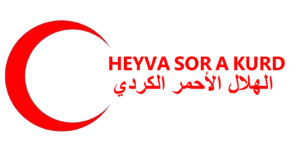Laugh , play and hope
Protection and Psychological support office provides bicycles for child Protection House in Al-Hasakah to each child according to their ages ,Observing the safety and security in agreement with the management of the house,in response to their desire to practice their cycling hobbies during summer holiday. The office also is continuig to provide a range of recreational and educational activities for children in addition to educational programs on how to deal with children for the staff working in the house.



 L
L


























